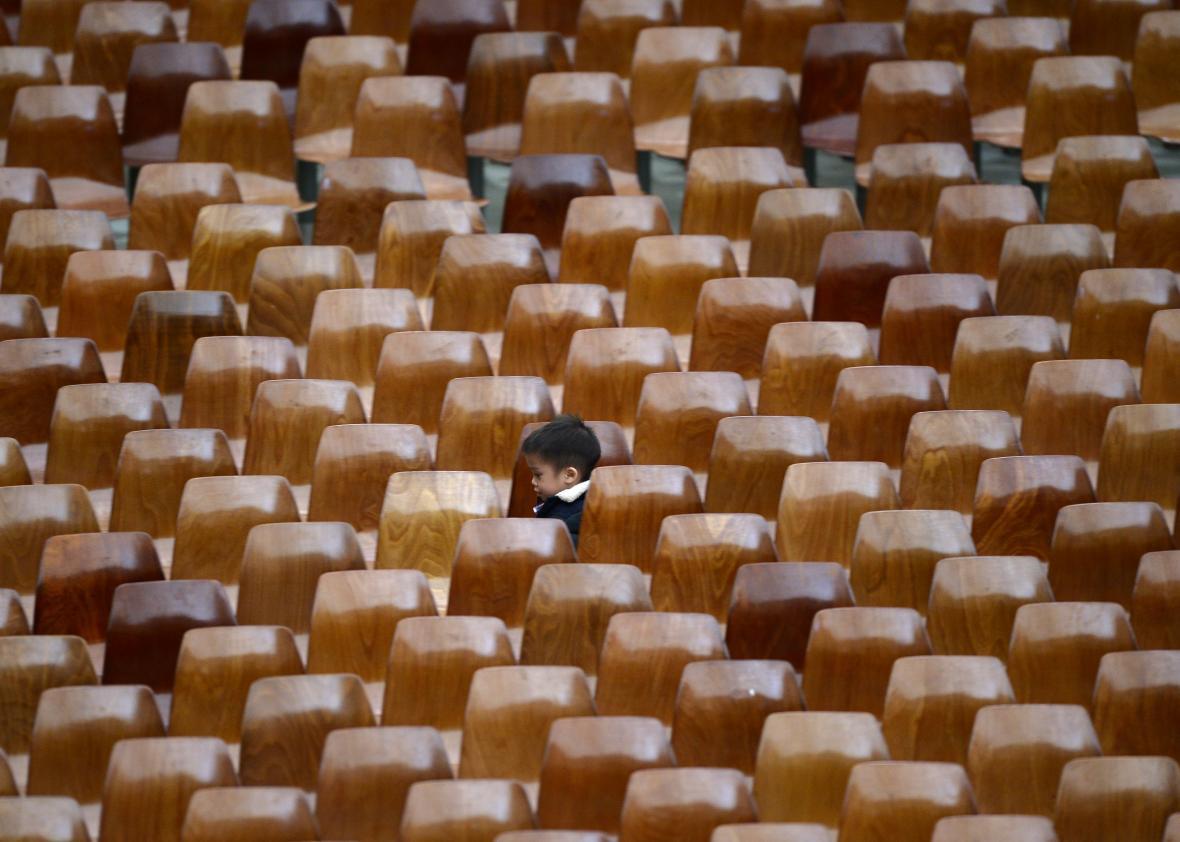On Wednesday, the Vatican’s commission on clerical sexual abuse announced that its only clerical sexual abuse survivor has quit. The final straw, Marie Collins wrote in a scathing statement, was when found out that the Vatican has failed to implement one of the commission’s most straightforward recommendations: to simply reply to all correspondence from victims of sexual abuse.
Collins, an Irish woman who is a prominent voice on the issue of clerical abuse, told the Catholic news outlet Crux that she is quitting the Pontifical Commission for the Protection of Minors because the commission’s work is being “hindered and blocked” by members of the church’s governing body, known as the Roman Curia. She said she is “totally disgusted” that the curia’s high-ranking men are obstructing the work of a commission set up to protect children and survivors.
“I find it impossible to listen to public statements about the deep concern in the church for the care of those whose lives have been blighted by abuse, yet to watch privately as a congregation in the Vatican refuses to even acknowledge their letters!” she wrote in her statement, published by the National Catholic Reporter. “It is a reflection of how this whole abuse crisis in the Church has been handled: with fine words in public and contrary actions behind closed doors.”
The commission was formed in 2014 with a mandate that included supporting victims, preventing abuse, and reviewing how priests are screened and trained. The 17-member group includes academics, social workers, clergy members and nuns, among others. Several members have complained over the years that they have been hamstrung in their work. Their budget is low, and for the first year they had to make do without an office or a support staff. The Vatican has failed to act on several of their recommendations. When the commission suggested a new tribunal to handle bishops who had failed to act on local abuse accusations, for example, the Vatican first approved the idea and then canceled it after one branch of the Curia objected. (Collins emphasized that she does not blame either the pope or the commission’s leader, Boston cardinal Sean P. O’Malley, for its failings.)
Collins is the second survivor of clerical sexual abuse to leave the commission. Peter Saunders, founder of a British organization called the National Association for People Abused in Childhood, was pushed to take a leave of absence last year, though technically he is still a member. Saunders had been critical of the commission’s prospects from the start. He was put on leave days after he told a reporter that one of the commission’s early meetings was a “nonevent,” and said he found it unlikely that they would be able to change the church’s handling of abuse cases. “I was told that Rome was not built in a day,” he added, “but the problem is that it takes seconds to rape a child.” Saunders was abused by a priest when he was a child in London.
“I simply have tried to work in the commission, and this resistance in areas of the curia is something I can’t continue working with, particularly as a survivor,” Collins told Crux today. “I can’t continue and it does not mean that the work won’t be continuing and I wish it goes well.” Collins will continue working on related projects for the church, including training newly ordained bishops in anti-abuse strategies.
Between 2004 and 2014, the year the commission was founded, the Vatican defrocked 848 priests and disciplined 2,572 others accused of raping and molesting children. “I think we have crossed a threshold so to say in our evolution of the approach to these problems,” the Vatican’s U.N. ambassador said at the time those numbers were released. “It’s clear that the issue of sexual abuse of children, which is a worldwide plague and scourge, has been addressed in the last 10 years by the church in a systematic, comprehensive, constructive way.”
